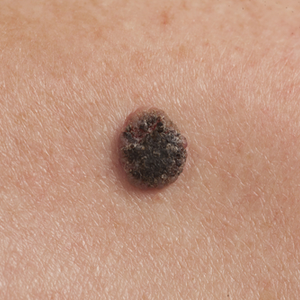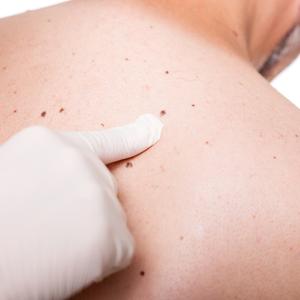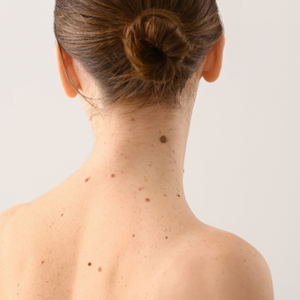The most common type of cancer, skin cancer affects more than 3.5 million Americans every year. One out of five Americans will develop skin cancer by the age of 70. The American Cancer Society recommends annual screening for skin cancer to make sure any incidences are detected early.
Early detection prevents the growth or spread of the disease, so it is wise to see a dermatologist if you notice any unusual or significant changes in your skin.
Three Most Common Skin Cancers
The term skin cancer refers to three different conditions:
- basal cell carcinoma (BCC)
- squamous cell carcinoma (SCC)
- malignant melanoma
BCC and SCC are referred to as non-melanoma skin cancers and are the most common forms of skin cancer. They are rarely life-threatening but can be locally destructive to tissue. Melanoma is generally the most aggressive skin cancer because it can metastasize (or spread) throughout our body quickly.
If you notice any of the following skin conditions, see your skin expert at Trillium Creek Dermatology.
BCC (basal cell carcinoma)

- An open sore that bleeds, oozes, or crusts and does not heal after two weeks.
- A pink or red patch of skin that is scaly or flaky, may itch or hurt, and persists for more than a few weeks.
- A pink or pearly translucent bump or nodule that may develop tiny blood vessels on its surface.
SCC (squamous cell carcinoma)

- A persistent, scaly, red patch that sometimes crusts or bleeds.
- A wart-like growth that enlarges within weeks with a central indentation.
- A raised, rough patch of skin that bleeds from minor scratching or rubbing.
- Often caused by UV radiation from tanning beds and long-term sun exposure that damages the DNA in skin cells
Melanoma – the ABCDEs

- Asymmetry. If you draw a line through a mole, both halves should match.
- Border. The borders of a melanoma may become uneven, scalloped or notched.
- Color. Melanoma will often be much darker than other moles or have a variety of colors both darker and light mixed together. Rarely melanomas can be pink or red.
- Diameter. Usually melanomas are larger than a pencil eraser, or ¼ of an inch. They may be smaller if detected early.
- Evolving. Any change in a mole – in size, shape, color or elevation – should prompt an evaluation by a dermatologist.
Frequently Asked Questions on Melanoma
Can a dermatologist tell if a mole is cancerous just by looking at it?
Can a melanoma appear overnight?
Can chemo cure melanoma?
Can melanoma be caused by stress?
Can melanoma be picked up in blood tests?
Can Melanoma go away on its own?
Can you have melanoma for years and not know?
Do you need chemo for melanoma?
Does vitamin D prevent melanoma?
How do they cut out melanoma?
How do you know if a mole is suspicious?
How do you know if a spot is skin cancer?
How do you know if melanoma has spread?
How fast does melanoma grow?
How long is chemotherapy for melanoma?
Is melanoma cancer a death sentence?
Is melanoma flat or raised?
Is Stage 1 melanoma considered cancer?
Is Stage 3 melanoma terminal?
Should you see an oncologist for melanoma?
What are the 4 types of melanoma?
What can be done to prevent melanoma?
What can be mistaken for melanoma?
What color is melanoma?
What does a melanoma spot look like?
What does a suspicious mole look like?
What does melanoma do to the body?
What foods to avoid if you have melanoma?
What happens to your body when you have melanoma?
What is the first sign of melanoma?
What is the latest treatment for melanoma?
What is the most aggressive melanoma?
What is the most common treatment for melanoma?
What is the most effective treatment for melanoma?
What really causes melanoma?
What scans are done for melanoma?
When should you get moles checked?
Prevention and Treatment of Skin Cancer

Skin Cancer Screening
Regular screenings can reduce the risk of developing skin cancer. Schedule a screening now to safeguard your health.
Learn More
Skin Cancer Prevention
Sun protection is the best way to prevent skin cancer. Find out how you can keep your skin, and your family’s skin, safe all year round.
Learn More
Moles
When people encounter moles, cysts, skin tags, and birthmarks, they may be worried about cancer growth or something more severe than a primary skin lesion. Our dermatologists can determine the severity of such marks on your skin.
Learn More
Mohs Skin Cancer Center
When action is required in the treatment of skin cancer, Mohs surgery provides the best possible outcome for both safety and scar prevention.
Learn More

